Northern lights gave Kansas a Friday night show to remember. See the spectacular
Wichita Eagle photographer Travis Heying captured these images of the northern lights, also called aurora borealis, on Friday night near the Marion and Chase County line.
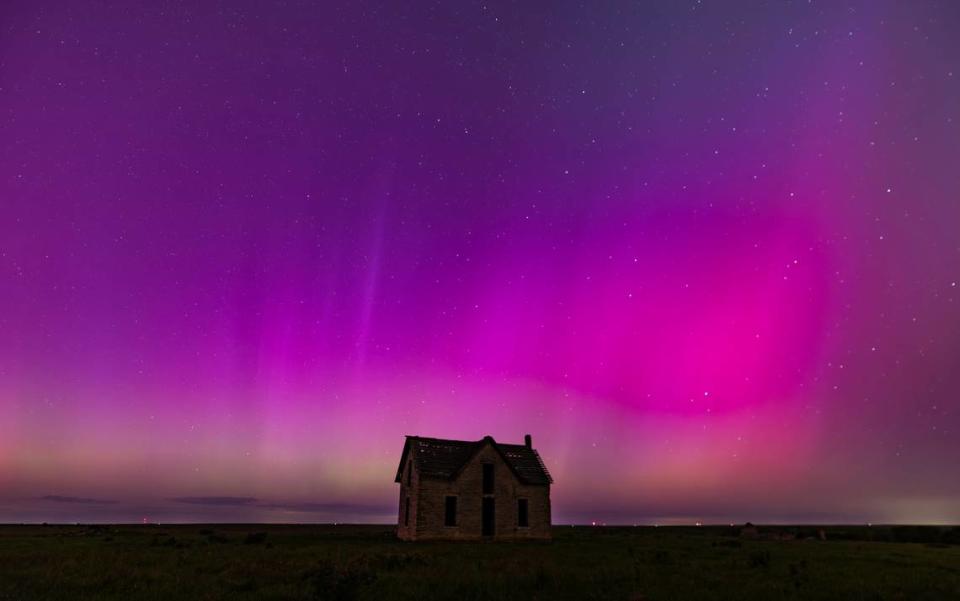
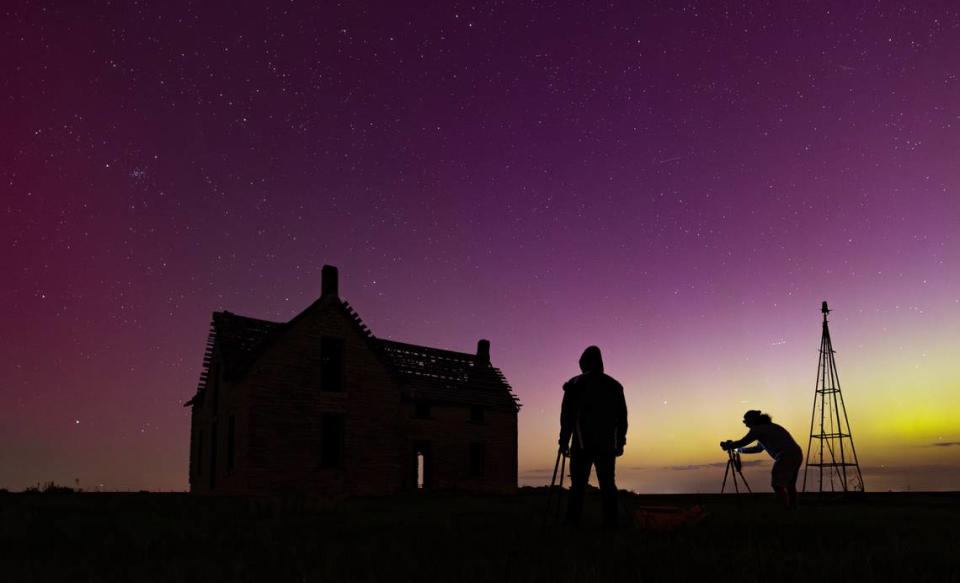
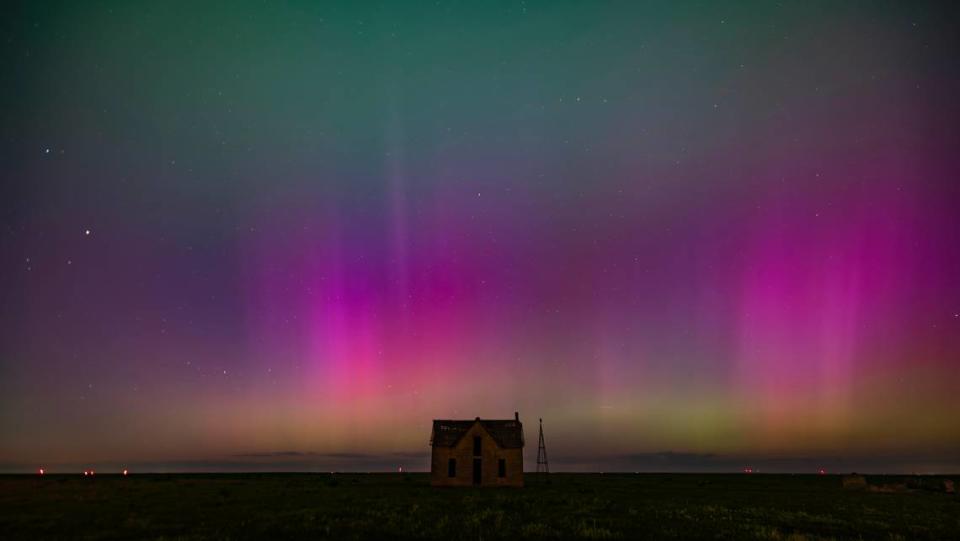
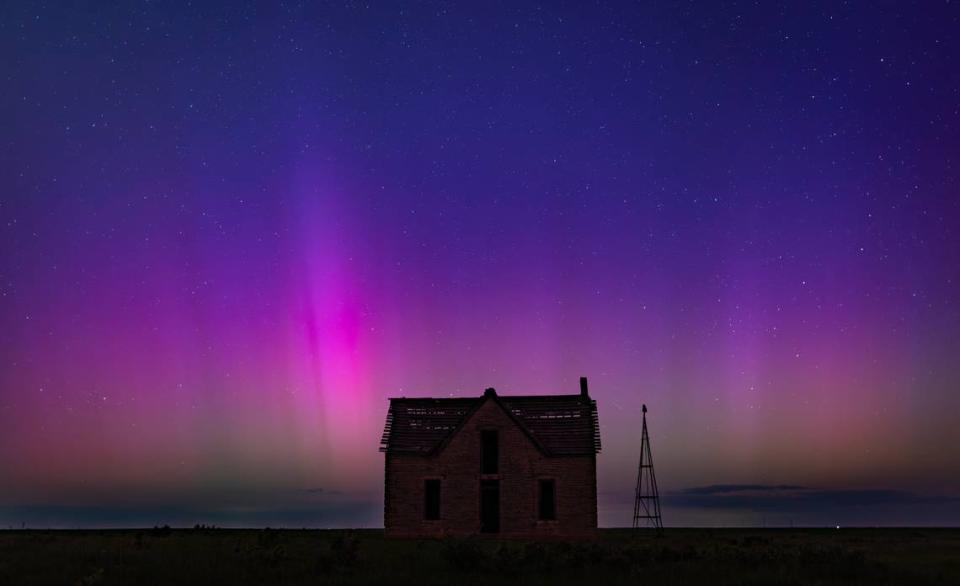
For comparison, here’s a photo Travis took of the same farmhouse in 2021.
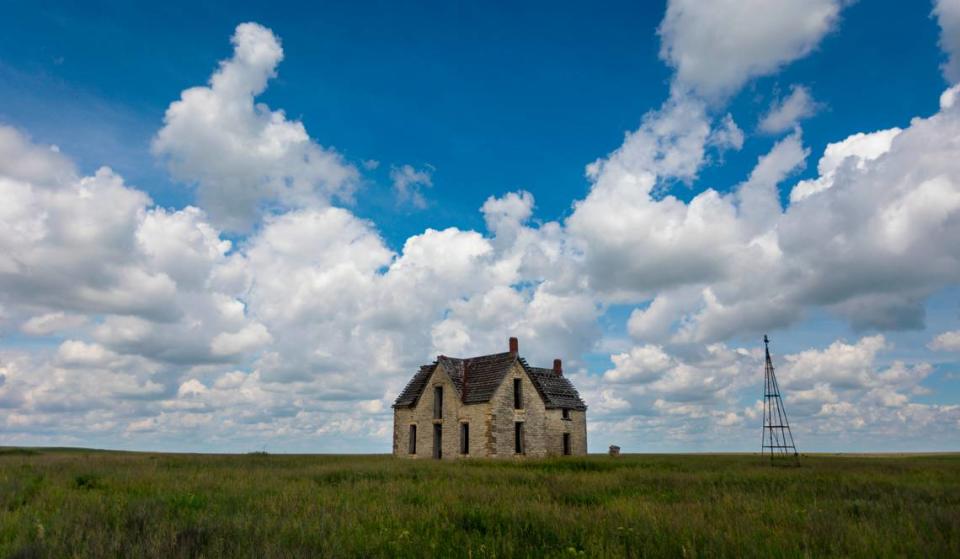
The northern lights
The northern lights occur when the sun’s energized particles come in contact with the Earth’s upper atmosphere at a very fast speed. Earth’s magnetic field protects the planet from the onslaught, according to Space.com.
The colors and brightness of the lights depend on the atmosphere’s chemical composition.
Auroras have a variety of colors — pink, green, blue, purple and yellow, to name a few.
The lights are usually the most visible in the “auroral zone,” which is in about a 1,550 mile radius of the North Pole, but solar storms can make the lights move farther south.
Contributing: Lindsay Smith of The Eagle

